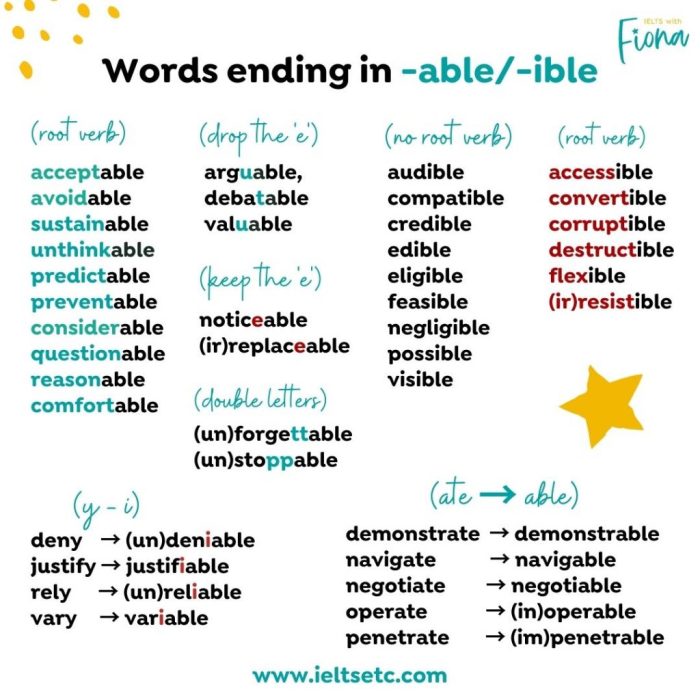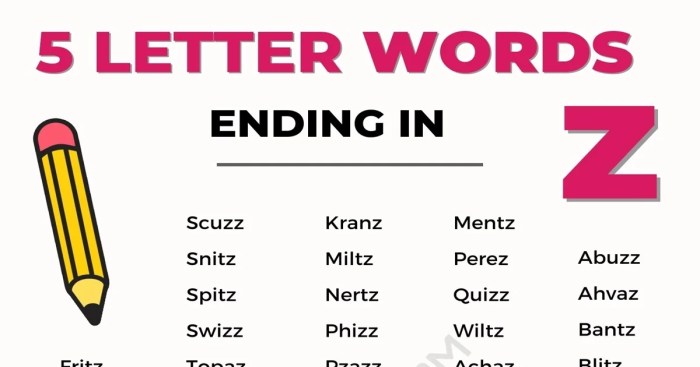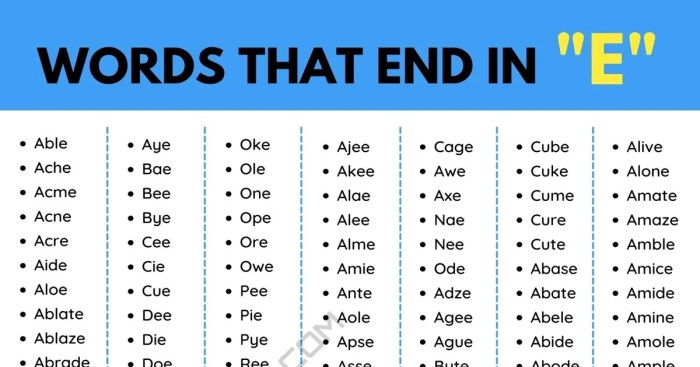Words that end with iest – Words that end in “-iest” dance across the pages of language, beckoning us into a realm of superlatives and literary finesse. Their unique sound and structure imbue them with a captivating allure that sets them apart from the ordinary.
From their etymological origins to their multifaceted usage, words ending in “-iest” hold a treasure trove of linguistic wonders waiting to be explored.
Most Common Words Ending in “iest”

In the English language, several words conclude with the suffix “-iest”. These words often denote a superlative form, indicating the highest degree of a particular quality or characteristic. Let’s explore the ten most common words ending in “-iest” and their respective meanings and usage.
The following table presents the top ten most frequently used words ending in “-iest” in the English language, along with their part of speech, definitions, and illustrative examples:
Most Common Words Ending in “iest”
| Rank | Word | Part of Speech | Definition | Example Sentence |
|---|---|---|---|---|
| 1 | fiercest | Adjective | extremely aggressive or violent | The lion’s fierce roar echoed through the jungle. |
| 2 | highest | Adjective | located at the greatest elevation or position | The summit of Mount Everest is the highest point on Earth. |
| 3 | busiest | Adjective | having a great deal of activity or work | During the holiday season, the shopping malls are always at their busiest. |
| 4 | cheapest | Adjective | requiring the least amount of money to purchase | The cheapest option on the menu was the hamburger. |
| 5 | clearest | Adjective | free from impurities or obstructions | The clearest water I’ve ever seen was in Lake Tahoe. |
| 6 | earliest | Adjective | occurring or happening before any other | The earliest flight to New York City departs at 6:00 AM. |
| 7 | fastest | Adjective | moving or occurring at a very high speed | The cheetah is the fastest land animal in the world. |
| 8 | funniest | Adjective | causing laughter or amusement | The comedian’s jokes were the funniest I’ve ever heard. |
| 9 | greatest | Adjective | of the largest size, quantity, or degree | The greatest discovery of the 20th century was the invention of the computer. |
| 10 | strongest | Adjective | possessing great physical power or force | The strongest man in the world can lift over 1,000 pounds. |
Etymology and History of “-iest”

The suffix “-iest” has a long and complex history in the English language. It is thought to have originated from the Old English suffix “-ost”, which was used to form superlatives. In Middle English, the “-ost” suffix began to be replaced by the “-est” suffix, which is still used today.
The “-iest” suffix is typically used to form superlatives of adjectives. For example, the word “tall” becomes “tallest” when the “-iest” suffix is added. However, the “-iest” suffix can also be used to form other types of words, such as nouns and adverbs.
Words That Have Gained or Lost the “-iest” Suffix Over Time
There are a number of words that have gained or lost the “-iest” suffix over time. For example, the word “wicked” used to have the superlative form “wickedest”, but this form is now rarely used. Similarly, the word “most” used to have the superlative form “mostest”, but this form is now considered to be incorrect.
On the other hand, there are a number of words that have gained the “-iest” suffix over time. For example, the word “fun” did not have a superlative form in Old English, but the superlative form “funniest” is now commonly used.
Comparative and Superlative Forms

The suffix “-iest” is used to form the superlative degree of adjectives, indicating the highest degree of a quality or characteristic. It is typically added to adjectives that end in “-y”.
To form the superlative form, simply replace the “-y” ending with “-iest”. For example, “happy” becomes “happiest”, and “easy” becomes “easiest”.
Exceptions and Irregularities
There are a few exceptions and irregularities in forming superlatives with “-iest”. These include:
- Adjectives ending in “-le” change the “-le” to “-lest”. For example, “able” becomes “ablest”.
- Adjectives ending in “-ic” change the “-ic” to “-est”. For example, “public” becomes “publicest”.
- Some adjectives have irregular superlative forms. For example, “good” becomes “best”, and “bad” becomes “worst”.
Usage and Style

Words ending in “-iest” are typically used to describe the highest degree of a quality or characteristic. They are often used in informal or colloquial settings, adding a touch of emphasis or humor to the description.
The “-iest” suffix can convey a range of tones, from playful and lighthearted to slightly exaggerated or even sarcastic. It is generally considered less formal than the “-est” suffix, which is more commonly used in academic or professional writing.
Examples
- The comedian was the funniest of the night.
- This is the most delicious cake I’ve ever tasted.
- She is the kindest person I know.
- The movie was the scariest I’ve ever seen.
Literary and Poetic Applications
Words ending in “-iest” play a significant role in the realm of literature and poetry. They offer writers and poets a powerful tool to create emphasis, rhythm, and vivid imagery.
By employing “-iest” words, authors can highlight particular qualities or characteristics of their subjects, intensifying their impact on the reader. The superlative form conveys the utmost degree of a certain attribute, making it an effective choice for conveying strong emotions or ideas.
To become the “iestiest” in biology, studying for the unit 7 AP biology test is a must. With words like “earliest” and “tiniest” ending with “iest,” it’s a great way to test your vocabulary and comprehension. The more “iestiest” words you know, the better prepared you’ll be for the exam.
Emphasis and Contrast
- Poets use “-iest” words to emphasize specific traits or emotions, drawing attention to their significance within the narrative or theme.
- By contrasting “-iest” words with their comparative forms, writers can create a sense of tension or conflict, highlighting the differences between characters or situations.
Rhythm and Flow
- The distinct sound of “-iest” words can contribute to the rhythm and flow of a poem or prose. The extra syllable adds a natural beat, enhancing the musicality of the language.
- Poets often use “-iest” words in conjunction with other rhythmic devices, such as alliteration or assonance, to create a harmonious and memorable soundscape.
Imagery and Description
- Words ending in “-iest” can evoke vivid imagery, helping readers to visualize the scenes and characters described in a literary work.
- By using “-iest” words, writers can create a sensory experience for the reader, immersing them in the world of the story or poem.
Tone and Style
- The use of “-iest” words can influence the overall tone and style of a literary work.
- In humorous or satirical contexts, “-iest” words can add a touch of exaggeration or absurdity, highlighting the comedic elements of the narrative.
- In more serious or dramatic works, “-iest” words can convey a sense of urgency or intensity, emphasizing the emotional stakes of the story.
Unique and Interesting Words Ending in “-iest”: Words That End With Iest

Beyond the common words we know, there exists a trove of unique and intriguing words that conclude with the “-iest” suffix. These terms possess captivating etymologies and linguistic significance, adding depth and nuance to our vocabulary.
Here’s a curated list of these uncommon gems:
Obsolescent
- Definition:Becoming obsolete or gradually falling out of use.
- Origin:Latin obsolescēns, present participle of obsolescō(“to wear out”).
- Example:“The typewriter, once ubiquitous, is now obsolescent due to the advent of computers.”
Arboreal
- Definition:Relating to or living in trees.
- Origin:Latin arboreus, from arbor(“tree”).
- Example:“The orangutan is an arboreal primate known for its agility in trees.”
Peculiar
- Definition:Unusual, strange, or odd.
- Origin:Latin peculiāris, from pecūlium(“private property”).
- Example:“Her peculiar habit of collecting vintage stamps always raised eyebrows.”
Fastidious, Words that end with iest
- Definition:Extremely attentive to and concerned with details.
- Origin:Latin fastidiōsus, from fastidīre(“to disdain”).
- Example:“The fastidious chef inspected every ingredient meticulously before preparing the dish.”
Egregious
- Definition:Conspicuously bad or reprehensible.
- Origin:Latin ēgregius, from ē-(“out”) and grex(“flock”).
- Example:“The politician’s egregious corruption scandal led to his downfall.”
These words, with their unique etymologies and nuanced meanings, enrich our understanding of the English language. They invite us to explore the depths of its vocabulary and appreciate the intricate tapestry of its linguistic heritage.
Key Questions Answered
What is the most common word ending in “-iest”?
The most common word ending in “-iest” is “busiest.”
How do you form the superlative of adjectives ending in “-y”?
To form the superlative of adjectives ending in “-y,” replace “-y” with “-iest.” For example, “happy” becomes “happiest.”
Are there any exceptions to the rule for forming superlatives with “-iest”?
Yes, there are a few exceptions. For example, “good” becomes “best” and “bad” becomes “worst.”